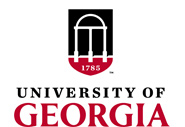BMP Research Synthesis
Data on effectiveness of agricultural and silvicultural Best Management Practices (BMPs) will be collected from literature for the southeastern US, and used to inform the project’s biophysical modeling, quantify uncertainty about efficacy and yield impacts of relevant BMPs, and identify practices for new BMP demonstrations.
BMP Field Research
To quantify water & nutrient use and water quality impacts of selected agricultural BMPs, field research of promising new cropping systems and management practices will be conducted at UGA’s Stripling Irrigation Research Park and UF’s Suwannee Valley Agricultural Extension Center. Resulting data will be used to calibrate and validate biophysical model predictions of field-scale water quality, quantity and yield impacts of new cropping systems and management practices; provide information for development of financial incentives for BMP adoption; and provide a basis for Extension educational materials and program development.
On-Farm BMP Demonstrations
Working directly with producers to implement BMPs via on-farm demonstrations is critical to understanding and overcoming barriers to adoption. On-farm BMP demonstrations will be developed in FL and GA to show current and new BMPs across a variety of soils and landscape conditions. Changes in irrigation and fertilizer use along with yield response will be quantified at each site.
Digital Decision Toolkit Development
Smartphone and web apps for cotton and peanut help agricultural producers in the project area use less water by tracking real-time weather and field conditions, scheduling irrigation and predicting crop maturity. Similarly, a corn app will be developed to add to this digital decision toolkit. In addition to informing irrigation scheduling, the corn app will track nitrogen in soil and plant tissue and will send notification when nitrogen application is needed. App predictions will be benchmarked against modeling results and will be evaluated in BMP field research and BMP on-farm demonstrations. The corn app will be delivered to county Extension agents and crop consultants via Extension In-Service Trainings.
Training
In-Service Trainings: County Extension agents and crop consultants in the project region will be provided with opportunities to learn about project outcomes through a three-part In-Service Training (IST) program.
- The first ISTs will provide information on issues that drive water quality/quantity conflicts in the region, including the importance of agriculture to the regional economy, impacts of agriculture on water resources, regional ecosystem sensitivity to changes in water quality/quantity, and environmental policies and regulations that FL and GA have adopted to protect water resources.
- The second ISTs will provide improved tools to help agricultural producers adopt BMPs that increase water-use efficiency and reduce nutrient leaching, including training on implementation of BMPs, use of the Digital Decision Toolkits, and field trips to BMP on-farm demonstrations.
- The third ISTs will present results of the project’s willingness-to-accept and willingness-to-pay surveys and participatory modeling and scenario analyses, including discussion of future community visions, potential land-use change, and BMP adoption incentives.
Water Schools: Decision makers will be provided opportunities to learn about project outcomes through Water Schools, which are designed to empower communities to make more efficient, consensus-based decisions about water management. The target audience for Water Schools will include city and county elected and public officials with authority over water management or economic development decisions, leaders of environmental and professional organizations, and other influential individuals and opinion leaders in the project region. Water Schools will help participants explore diverse perceptions of the water resources in the project region; provide information regarding water resource challenges and the role of agriculture and water resources in the regional economy; engage participants in discussing producers’ willingness to accept and public willingness to pay for land-use change and BMP adoption; and will present the scenario analyses from the participatory modeling.
Learn more about specific workshop topics, participating agencies, and resources Water Workshops for North Florida Water for Southwest Georgia's Future
Extension Team Members
Team Coordinator
Paloma Carton de Grammont, University of Florida
Kelly Aue, University of Florida
Kevin Athearn, University of Florida
Gail Cowie, Albany State University
Michael Dukes, University of Florida
Robert Hochmuth, University of Florida
Joel Love, University of Florida
Mark Masters, Albany State University
Wesley Porter, University of Georgia
Sudeep Sidhu, University of Florida
George Vellidis, University of Georgia
Students
Jason Merrick, University of Florida
Past members
Charles Barrett, University of Florida
Tatiana Borisova, University of Florida
Justice Diamond, University of Florida
Kati Migliaccio, University of Florida
Tyler Pratt, University of Florida
Diane Rowland, University of Florida
Shelby Sangster, University of Georgia
Arianna Toffanin, University of Georgia
Maria Zamora, University of Florida





